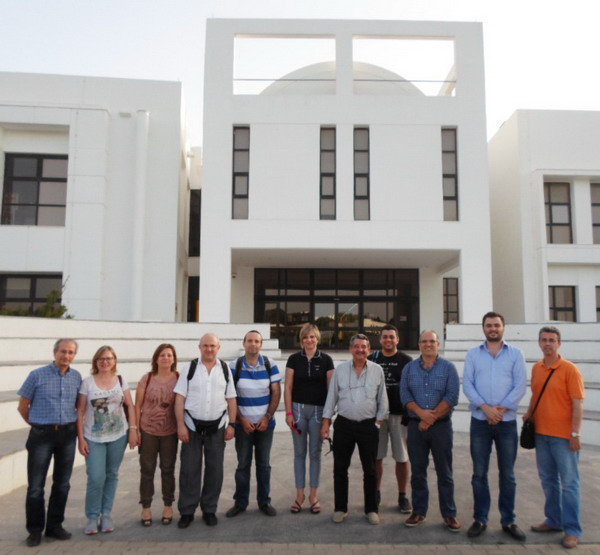In Greece, five highly qualified and experienced teachers (one primary teacher, two physics teachers and two chemistry teachers) participated as active members in a ''Community of Learners'' (CoL). Two science education researchers, two nanoscience researchers and three science museum experts supported the CoL. Since the members of the CoL are located in different parts of Greece, teleconferences and face to face workshops were used in order to facilitate the collaboration and exchange of ideas and materials.
In a series of six virtual meetings, expert members of CoL shared their knowledge and experience with the teachers as far as specific aspects of the module were concerned (nanoscience as a scientific field, nanoscience education, inquiry-based learning strategies, RRI issues, development of exhibitions, Web 2.0 tools in science teaching).
The next stage was the organization of a three-day workshop in Crete, during which teachers were involved in intensive discussions with experts. Teaching materials, nanoproducts, guidelines for exhibitions’ development provided a valuable feedback for the module’s development. In a new round of four virtual meetings, teachers’ proposed guidelines for module development were discussed. A single teaching module was finalized as an outcome of the constructive discussion of the group in a new two-day workshop that took place in Athens. The developed module was used with about hundred students in total in primary and secondary education.
Preliminary findings show that teachers are satisfied with the supporting structure of the CoL, as the experts form a “safety net” for them throughout the process of developing and implementing the module.

The greek CoL visiting the Foundation for Research and Technology (FORTH) in Heraklion Crete.








